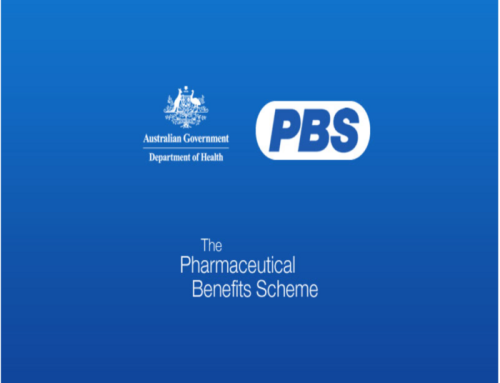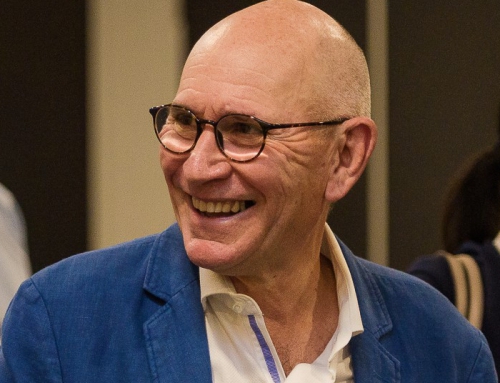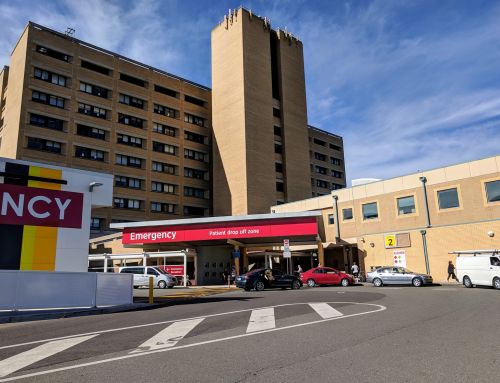During National Aboriginal and Islanders Day Observance Committee (NAIDOC) Week, we celebrate Tracy’s journey.
Tracy, a proud Aboriginal woman, embodies determination and leadership. She has always been a go-getter. Unlike many in her community, she is confident, educated, and unafraid to ask questions.
Her involvement with ANZGOG spans over the past couple of months and she was asked if she could travel to Wellington, New Zealand for the ANZGOG Annual Scientific Meeting (ASM) 2024 , as a community volunteer with a lived experience.
She found it particularly uplifting that despite the professional backgrounds of the researchers and clinical staff—such as doctors and professors—they could engage in meaningful conversations on a personal level. This realisation reassured her that there was no divide between medical professionals and patients.
“I find that just because they’re researchers and clinical staff, you know, doctors, professors, they’re still people and we’re able to have a general conversation. So, I find that really uplifting, I think, because, you know, there’s no between. It’s not them and us. So that’s, that’s reassuring that, you know, I matter.”
She expressed a belief in the significance of her involvement with ANZGOG, emphasising the critical role of gynaecological cancer research in improving health outcomes for patients diagnosed with gynaecological cancers. “I feel if we don’t have what we have with ANZGOG, research, how do we know something? How do we get better at the delivery of it all?? In regard to my mob, being Aboriginal, how do we break the stigma of going and, you know, getting an opinion or seeing a doctor, even making the first step? Woman’s business is woman’s business, but you need an intervention if you’re sick.”

Tracy (second-right) with ANZGOG members at the ANZGOG 2024 Annual Scientific Meeting
Her proactive approach to health is a stark contrast to the stigma that often surrounds medical visits in Aboriginal communities. “I think in regards to Aboriginal people, they have the stigma of, you only go to the doctor and every time you go to the doctor, someone dies,” Tracy explains. This deeply ingrained fear can prevent many from seeking timely medical advice, leading to late diagnoses and poorer outcomes.
Tracy’s journey with cancer highlights the importance of changing this narrative.
“It’s changing how we get better at educating them,” she says. For Tracy, understanding her diagnosis was crucial. “I need to actually know if I’ve got cancer, how did I get it, or what form of it. So I’ll go and research myself.”
Her inquisitive nature and determination to understand her condition set her apart, but she acknowledges that not everyone in her community shares this approach.
When discussing equity, inclusion, and diversity, Tracy points out the challenges faced by those who are less outspoken. “There’s a cohort of my mob that aren’t [like me]. They are very shy, their stigma still sticks with, you know, colonisation, etc.”
This group, she notes, is particularly vulnerable. “In the last couple of years, [they] have died from preventable cancers because we haven’t gone from A to B. We’ve gotten to A and we’ve just taken the gospel from the doctor to say, I have cancer, so I’m just going to sit in the community and die.”

Tracy pictured above, (third from left, front row) amongst some of ANZGOG‘s Community Volunteers. A diverse range of voices and experiences from volunteers like Tracy is crucial to ANZGOG.
Tracy emphasises the need for better communication and targeted outreach to this cohort. “Sometimes the how to communication is one of the issues or the barriers,” she says. Ensuring that Aboriginal communities receive the same information and opportunities as others is crucial in improving health outcomes.
The importance of equity, inclusion, diversity in healthcare
ANZGOG recognises these diverse needs and believes that everybody deserves equity in access to gynaecological cancer care. By sharing stories like Tracy’s, ANZGOG aims to highlight the importance of culturally sensitive healthcare and the need for ongoing education for those who deliver gynaecological cancer care and also improved support within Aboriginal communities. Through collaborative efforts and community outreach, ANZGOG strives to ensure that all women, regardless of their background, have access to the care and information they need to manage gynaecological cancers.











